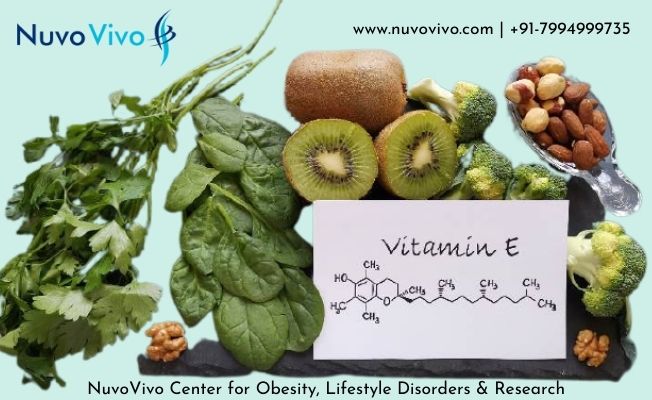Vit E is a fat soluble vitamin that occurs in 8 different varieties – comprising of 4 types of tocopherols and 4 types of tocotrienols. The human body readily absorbs and uses only one type of it called alpha-tocopherol for its functions. Vitamin E acts as an antioxidant and helps in enhancing immunity and prevents blood clots in the heart arteries. One of the other main functions of the Vitamin is to scavenge on the loose electrons in the human body which are also known as free radicals. Nuts, seeds and vegetable oils are very good sources of Vitamin E
What are free radicals?
Free radicals are toxic substances that are formed as a byproduct of metabolism and also from external environment such as vehicle exhaust, pesticides in fruits and vegetables etc. These free radicals are highly reactive and causes a chain reaction of sorts in the human body causing inflammation and even cancer.
As per their chemical structure, free radicals are atoms or molecules that have an unpaired electron, making these molecules highly reactive. Such biologically active free radical atoms or molecules can cause oxidative stress or oxidative damange which eventually leads to infllamation, aging and even cancer.
An antioxidant compound, such a Vit E has the ability to neutralise such free radicals there by preventing the oxidative stress.
How are free radicals formed in the body?
Our body forms ROS (reactive oxygen species) when food is converted into energy. Free radicals also react rapidly with oxygen forming ROS. Even from environmental exposure, our body is exposed to free radicals. Cigarette smoke, air pollution, ultra-violet radiation are all main contributing factors. These free radicals can damage the cell membranes in our body resulting in artery-clogging, atherosclerosis, cancer, vision loss, and many other chronic issues. Vitamin E not only protects the cells from free radical damage, but it also helps in stopping the free radical production entirely.
Even though Vitamin E deficiency is quite rare, it is usually found in people with genetic disorders. Daily Recommended Dietary Allowance (RDA) of Vitamin E is 15mg for healthy individuals older than 14 years and 19mg for lactating women. The upper limit for an adult above 19 years is 1000 mg daily since over intake of vitamin E supplements can lead to excessive bleeding especially in individuals having blood-thinning medication such as warfarin.
It is present in many food items such as vegetable oils, cereals, poultry, meat, fruits, eggs, vegetables, wheat germ oil, etc. Almonds, sunflower seeds, asparagus, peanuts, red bell pepper, avocados, beet greens, etc are all rich in Vitamin E.
Health facts of Vitamin E
- Studies have shown that vitamin E supplements can prevent cardiovascular diseases to an extent in certain subgroups of the general population, especially among people with type 2 diabetes.
- Clinical trials have shown that vitamin E can lower the risk of prostate cancer among smokers.
- Vitamin E, combined with Vitamin C, is suggested to improve cognitive functions while lowering the risk of Alzheimer’s disease.
- Having vitamin E with fish oil has been found effective in reducing menstrual cramps and blood loss.
- Vitamin E intake is found to be effective in reducing infertility issues among men.
- Oral intake of vitamin E was found to help treat premature babies with bleeding in the skull.
- It can also help reduce the liver’s inflammation and fatty liver to an extent among non-alcoholic individuals.
Detailed studies are being done even today to assess the effects of this vitamin among different groups of the general population.
Deficiency of Vit E and symptoms
As stated earlier, vitamin E deficiency is not common as it is found in a variety of food items and supplements. Genetic disorders or digestive disorders can cause this deficiency. When fat is not absorbed by the body properly, due to pancreatitis, cystic fibrosis, celiac disease, etc, the person can develop vitamin E deficiency. A few signs of vitamin E deficiency are stated below:
- Retinopathy – vision impairment due to the damage of the retina
- Peripheral neuropathy- peripheral nerves of the hands or feet are damaged causing weakness and pain.
- Ataxia – the individual loses control of body movements.
- Decreased immune functions of the body
Vitamin E is as important for the healthy functioning of the body just like other nutrients. A healthy eating habit including all the necessary nutrients in the right percentage should be practiced by everyone.


This Post Has One Comment
Pingback: NuvoVivo: A Comprehensive Journey to Health and Vitality - NuvoVivo: Reverse Your Age & Lifestyle Diseases